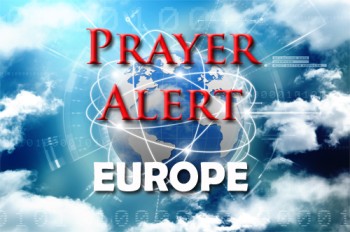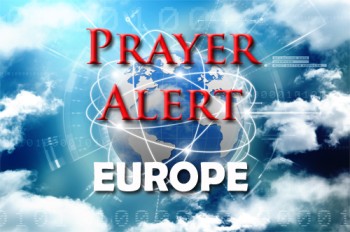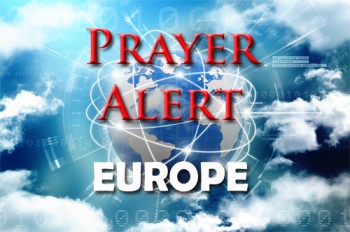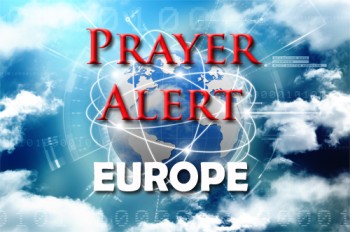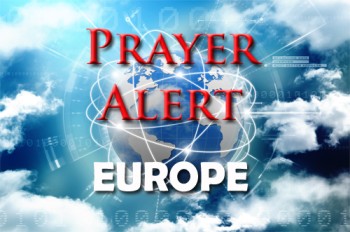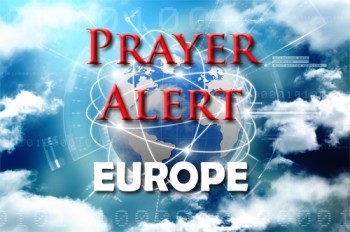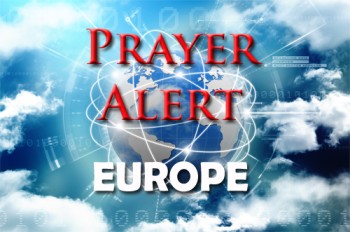Displaying items by tag: Europe
France: a nun has become a powerful evangelist, thanks to social media
Sister Albertine, a young French nun, has become a surprising yet powerful online evangelist. Through videos, social media posts and candid personal sharing, she invites many - especially younger people - to encounter Jesus. What makes her ministry effective is her authenticity: she speaks of her own struggles, questions and faith journey, and thereby becomes relatable. Her online presence challenges the stereotype of nuns as remote or rigid; instead, she shows a warm, accessible discipleship. By combining tradition with digital outreach, she bridges generational and cultural gaps. Her approach reminds us that God can use unexpected channels to draw hearts, and that faith expressed in vulnerability can reach places formal teaching sometimes cannot.
Spain: a different approach to Africa and to migrants
In contrast to many Western nations, Spain is charting an independent path on migration and relations with Africa. While the USA, UK, France, and Germany are reducing development aid, prime minister Pedro Sánchez is deepening his country’s engagement with Africa through investment, diplomacy, and dialogue. The socialist-led government’s strategy emphasises shared prosperity, education, and sustainable growth, reflecting Madrid’s belief that Europe and Africa ‘form part of the same geopolitical space’. Alongside this vision, Spain continues to experience migration pressures, with 45,000 crossing from Africa to Spain or the Canary Islands in 2024. Yet unlike many European leaders, Sánchez acknowledges migrants’ contributions and backs ‘safe, orderly, and regular’ mobility schemes such as ‘circular migration agreements’ which give West Africans short-term visas to come to Spain for limited periods of seasonal work, mainly in agriculture, and then return. By coupling realism with empathy, Sánchez is seeking to balance security with solidarity, presenting a model of cooperation rooted in dignity, opportunity, and mutual benefit.
Greece: parliament set to approve thirteen-hour workday
Greece is poised to introduce one of Europe’s most controversial labour reforms - a thirteen-hour workday for private-sector employees. The new legislation, expected to pass parliament despite widespread protests, would allow workers in industries such as manufacturing, retail, and hospitality to take on a sixth workday and extended hours, with higher pay for overtime. The government argues that this flexibility will help address labour shortages and support economic growth amid an aging population. However, unions and opposition leaders have condemned the move as a step backward, heightening job insecurity, disrupting work-life balance and legalising overexploitation. One in five Greeks works more than 45 hours a week, the highest rate in the EU, and outdone by only four other countries in the world; low salaries force many to work two jobs to cover the soaring cost of living, in particular high housing costs. Officials insist the extra hours will be voluntary and regulated, but many groups are deeply sceptical.
France: boom in baptisms and Bible sales
An unexpected spiritual revival is unfolding in France, where more than 10,000 adults are set to be baptised in 2025 - a 45% increase in one year. This surge, accompanied by record youth participation in pilgrimages and a marked rise in Bible sales, is reshaping the French Catholic landscape. Journalist Antoine Pasquier has investigated why young people are turning to faith in a secular society still recovering from scandal and decline. His research reveals that Scripture, not social media, plays the central role in conversions, as many seekers first encounter Christ through personal reading of the Bible. Influenced by the visible faith of Muslim peers, many young converts desire to express their beliefs openly and live with greater spiritual depth. Pasquier calls for the French Church to become a ‘catechumenal Church’ - one renewed through evangelisation, personal conversion, and openness to the Holy Spirit.
France: new PM to be named within 48 hours?
Emmanuel Macron is expected to appoint a new prime minister within 48 hours, following the abrupt resignation of Sébastien Lecornu’s government just 14 hours after being named. Lecornu, asked to outline a path forward, concluded that most lawmakers oppose snap elections and that a narrow parliamentary plurality could support a 2026 budget aimed at reducing France’s deficit, projected at 5.4 percent of GDP. Macron now faces the challenge of naming a leader capable of governing without a parliamentary majority - the same obstacle that brought down Lecornu’s predecessors. Choosing a centre-left prime minister from the Socialist Party could help build a coalition but would probably reignite controversy over Macron’s contested pension reform, which raised the retirement age. With political divisions deepening, Macron has yet to comment publicly, while far-right leader Marine Le Pen and her party have said they would vote to topple any new prime minister named before new elections, intensifying France’s ongoing political instability. For an assessment of Macron’s options, see
Europe: EC proposes drastic cut in steel imports, doubles tariffs
The European Commission has proposed halving the volume of steel imports entering the EU duty-free - from 30.5 million to 18.3 million tonnes annually - and doubling tariffs on imports exceeding that quota to 50%. The move, announced by EC president Ursula van den Leyen, aims to protect the struggling European steel industry, which operates at just 67 percent capacity and faces heavy competition from cheap, subsidised steel, especially from China. Global steel overcapacity, now at 600 million tonnes, is projected to exceed 720 million next year, pressurising European producers and leading to the loss of 18,000 jobs across the bloc. The new measures, including a ‘melt and pour’ rule to trace steel origins, are designed to curb tariff circumvention and lift EU production to 80% capacity use. While the plan also affects US imports, Brussels hopes for cooperation with Washington to address global surpluses. The proposal now awaits approval from EU member states and the European Parliament.
France: implications of Sarkozy’s unexpected conviction for corruption
Former president Nicolas Sarkozy has been convicted of criminal conspiracy and sentenced to five years in prison, marking a historic and dramatic moment in French politics. The Paris court ruled that he engaged in an attempted ‘corruption pact’ with Muammar Gaddafi’s regime to secure millions in illegal funding for his 2007 presidential campaign, though it could not establish whether the money was actually transferred. The case underscores how corruption can erode citizens’ trust in leadership. Sarkozy, who maintains his innocence, also faces a €100,000 fine and will begin serving his sentence despite pending appeals, a rare judicial decision in France. The ruling has poured more fuel on France’s fractious politics; Marine le Pen, who was convicted of embezzlement in March, suggested the ruling was politically motivated, while others see it as proof that even powerful figures can be held accountable. Sarkozy, already convicted twice before, remains an influential figure, still consulted by current leaders navigating France’s volatile political landscape.
Czech Republic: former PM poised for comeback, faces difficult balancing act
Billionaire and former prime minister Andrej Babis is poised for a political comeback as his ANO party leads polls ahead of the October 3-4 elections. Having shifted from a liberal to a national-conservative position, Babis is promising voters financial relief and protection from external pressures such as immigration and climate policies. Yet his return to power would be fraught with complications. ANO is expected to fall short of a majority, forcing him to seek support from far-right or far-left allies who advocate leaving the EU and NATO – a stance at odds with his own pledge to remain. He also faces personal challenges, including a renewed fraud trial and a significant conflict of interest over his vast business empire, Agrofert, which receives significant EU subsidies. His alliances with figures like Hungary’s Viktor Orbán underscore his anti-Brussels stance, but navigating extremist demands while maintaining pro-Western ties may prove his toughest balancing act yet.
Moldova: president warns of Russian interference as elections near
Days before crucial parliamentary elections, Moldova’s president Maia Sandu has warned that Russian-backed plots are threatening her nation’s independence and European aspirations. Police have arrested 74 people accused of planning violent unrest, seizing weapons and explosives allegedly supplied through Russian training in Serbia. Sandu accused the Kremlin of pouring hundreds of millions of euros into Moldova to spread disinformation, buy votes, and intimidate pro-EU supporters, echoing past meddling during the 2022 EU-accession referendum which was narrowly approved by just 50.4%. Pro-Russian parties deny wrongdoing and claim Sandu is stifling opposition, while Moscow’s SVR intelligence agency countered with disinformation alleging European plans to falsify the vote and occupy Moldova. Sandu’s Party of Action and Solidarity faces stiff competition, especially in Russian-speaking regions like Gagauzia where many favour closer ties to Moscow. She is calling for high voter turnout, particularly from the diaspora, to safeguard the country’s sovereignty and keep its path toward EU membership.
Italy: two days of strikes in support of Palestine cause widespread disruption
Thousands of Italian workers and students staged a nationwide general strike and demonstrations on 21 September. Organised by grassroots unions and supported by Italy’s largest trade union, CGIL, the walkout disrupted public transport, trains, schools, and ports. Major cities such as Rome and Milan experienced severe transit delays, while sit-ins at Genoa and Livorno ports slowed the movement of goods. The action, which followed a similar strike the previous day, was called to protest about the humanitarian crisis in Gaza, Israel’s blockade of aid, and threats against the Global Sumud Flotilla mission. USB, a key union federation, criticised the government and the EU for refusing to impose sanctions on Israel and for maintaining economic ties despite ongoing violence. Rome authorities reported about 20,000 demonstrators at midday near Termini station, though organisers said there were up to 100,000. Meanwhile, Giorgia Meloni’s government faces rising domestic pressure over its stance on the Israel-Hamas war.

